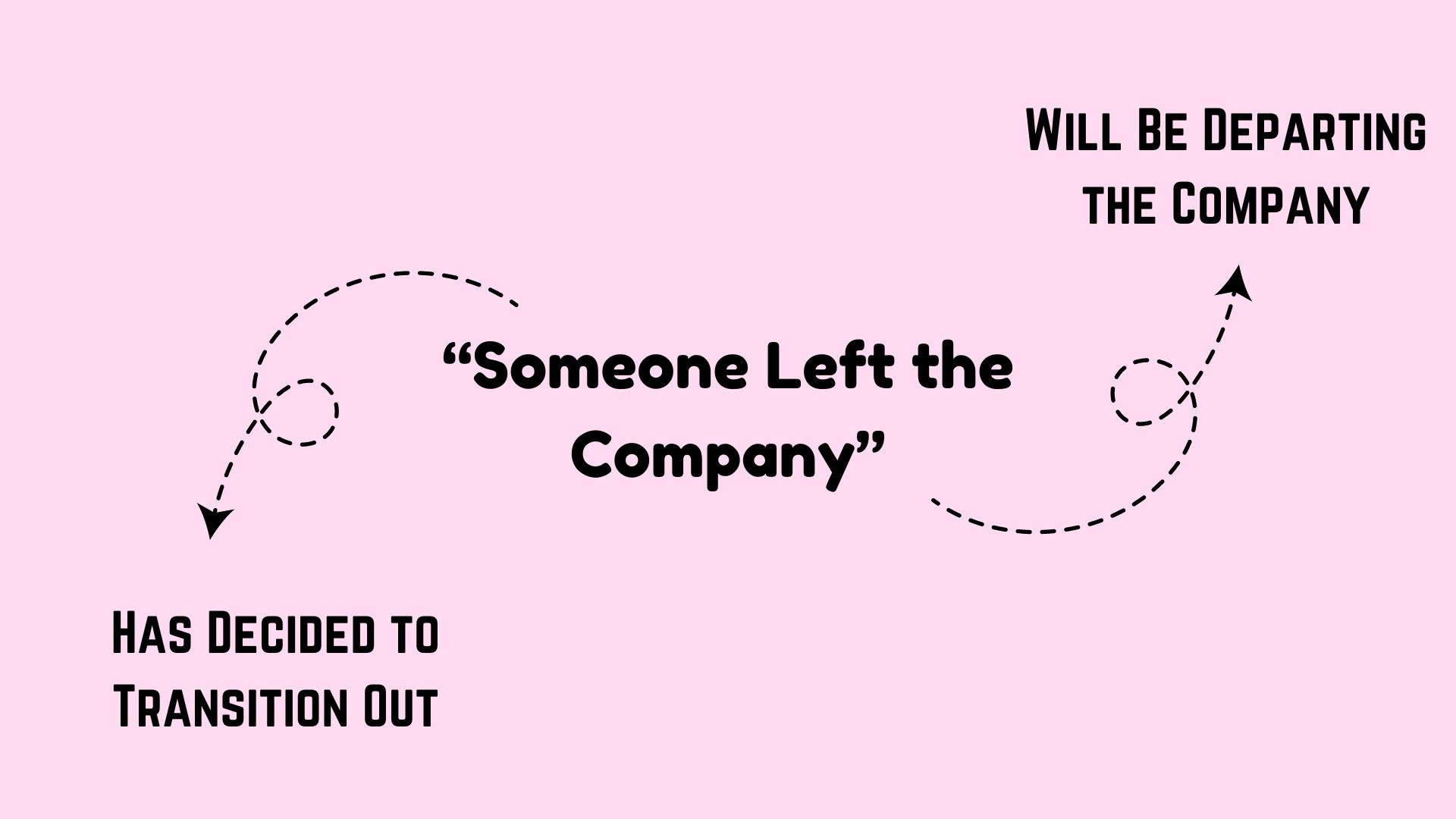When communicating that a colleague or team member has left the company, it’s important to maintain a professional and respectful tone. Here are 21 ways to announce that someone has left the company, each with an example and a specific use case to help you manage these communications effectively.
1. Has Moved On to New Opportunities
Example: “John has moved on to new opportunities outside of the company.”
Use Case: When you want to highlight that someone has taken another professional direction.
2. Has Chosen to Pursue Other Ventures
Example: “Sarah has chosen to pursue other ventures, and we wish her the best.”
Use Case: When someone leaves to explore new career paths or personal projects.
3. No Longer with the Organization
Example: “Effective immediately, Mark is no longer with the organization.”
Use Case: A direct and formal announcement when someone’s departure has already taken effect.
4. Has Departed from the Company
Example: “Emma has departed from the company after five years of valuable service.”
Use Case: When announcing the departure of a long-time employee with a respectful tone.
5. Has Decided to Step Down
Example: “Paul has decided to step down from his role to focus on personal projects.”
Use Case: When someone is leaving voluntarily to pursue personal interests or projects.

6. Has Left the Organization
Example: “Jane has left the organization to take on a new challenge in her career.”
Use Case: When emphasizing that the individual is pursuing a new professional opportunity.
7. Transitioning Out of the Role
Example: “Tom is transitioning out of his role, with his last day being next Friday.”
Use Case: When you want to announce an upcoming departure with a transition period.
8. Has Resigned from Their Position
Example: “Samantha has resigned from her position to explore other opportunities.”
Use Case: For a formal announcement when someone has voluntarily resigned.
9. Will Be Leaving the Company
Example: “Alex will be leaving the company at the end of the month.”
Use Case: When informing about an upcoming departure that has been planned.
10. Has Chosen to Step Away from the Team
Example: “Rachel has chosen to step away from the team to pursue other ventures.”
Use Case: When someone leaves a specific team or department for another role or opportunity.

11. Is Pursuing a New Career Path
Example: “Michael is pursuing a new career path and will be leaving us in two weeks.”
Use Case: When highlighting that someone is leaving for a different career direction.
12. Has Transitioned Out of the Company
Example: “David has transitioned out of the company to focus on other professional goals.”
Use Case: When someone has already left and you’re providing an update on their departure.
13. Has Decided to Move Forward with a New Opportunity
Example: “Carla has decided to move forward with a new opportunity outside the organization.”
Use Case: When someone leaves to join another company or pursue a fresh challenge.
14. Will Be Pursuing Other Interests
Example: “Steve will be pursuing other interests, and we wish him success in his new endeavors.”
Use Case: When someone leaves to explore personal or professional interests outside of the company.
15. Will Be Leaving to Focus on Personal Projects
Example: “Megan will be leaving to focus on personal projects and future endeavors.”
Use Case: When the departure is motivated by personal rather than professional reasons.

16. Is Moving On from Their Current Role
Example: “Olivia is moving on from her current role to take on new challenges elsewhere.”
Use Case: When someone is leaving their role for a new opportunity without giving specific details.
17. Is No Longer with Our Team
Example: “As of today, Robert is no longer with our team.”
Use Case: For a formal and clear announcement of someone’s immediate departure.
18. Will Be Departing the Company
Example: “Mia will be departing the company at the end of the quarter.”
Use Case: When you want to notify about an upcoming planned departure.
19. Has Opted for a Career Change
Example: “Ryan has opted for a career change and will be leaving us next month.”
Use Case: When emphasizing that the person is leaving to explore a new professional direction.
20. Has Decided to Transition Out
Example: “Lisa has decided to transition out of her role to pursue new opportunities.”
Use Case: When announcing a smooth transition and departure.

21. Has Chosen to Seek New Challenges
Example: “James has chosen to seek new challenges, and we support his decision.”
Use Case: When someone is leaving voluntarily to take on new challenges in their career.
These phrases offer professional and respectful ways to announce a colleague’s departure, maintaining a positive tone and ensuring clear communication.

